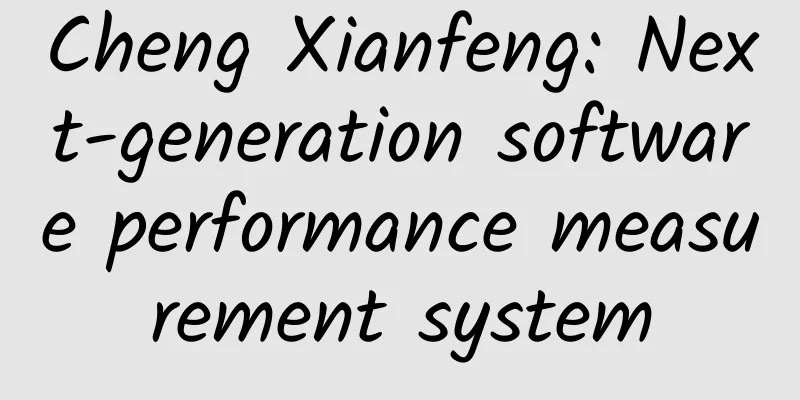Dell's all-in acquisition of EMC causes 10 shocks

|
Text/Lao Liang on the front line Hopefully the honeymoon won't be too long. Because the industry is full of wolves. Last night, the hottest topic in the circle of friends was this: Dell acquired EMC for approximately US$67 billion. This acquisition has been rumored for a long time, and now it has been successful, which makes people sigh. Frontline reporters believe that this transaction, which has the highest acquisition amount in the technology industry so far, will trigger a series of huge shocks. There are ten in total: 1. Dell pretends to smile: If overdraft of credit card fails, then the company will collapse Dell, which finally achieved privatization, surprised everyone by acquiring EMC, once the leader in the storage industry, at a sky-high price after two years of silence. Overall, this huge acquisition is definitely what Dell needs most. After privatization, Dell should know what it needs. Although EMC has a very high market value, the price is too high. EMC was in the limelight two years ago, packaging hot topics such as big data. However, as cloud service providers became popular in the IT industry, EMC established a federation. However, due to the lack of comprehensive infrastructure accumulation, it is obviously constrained compared with several other companies. After Dell went private, he spent part of his time dealing with household affairs, but this acquisition is Dell's ultimate move after going private. If the acquisition fails, Dell may collapse. After Dell acquired EMC, it supplemented its high-end storage strength and infrastructure delivery capabilities, allowing Dell to further complete IaaS, PaaS and SaaS. Of course, EMC owns 80% of VMware, so even if VMware is an independent public company, Dell and EMC are still in a good position to benefit from software-defined computing. This also further complements Dell's any cloud strategy. A TV screenshot just now showed that Joe Tucci had a serious face, while Michael Dell had a happy face. 2. EMC secretly rejoices: Selling at a good price while young Just now a good friend said in the group that "Joe Tucci sold EMC in a rage", and I strongly agree with this on the front line. Joe Tuss was once considered by the industry to be the enterprise-level "Steve Jobs". The EMC Federation he proposed was even more regarded by the industry as an enterprise-level aircraft carrier. But sadly, it seems that Joe Tucci has lost control of the federation, or perhaps the industry simply cannot understand the true meaning of the federation. In addition, his search for a successor is unclear, and after moving from storage to information to big data, EMC has never found a more perfect vision to support it. As a result, EMC Federation looks more like a perfect framework. EMC is still a big name in the storage industry, but its business development seems to have entered a period of stagnation. Its second quarter financial report shows that its revenue is $6 billion, a year-on-year increase of 2%; its net profit is $487 million, a year-on-year decrease of 17%. After being entrusted with the important task, the Greater China region happened to coincide with the rapid rise of Chinese manufacturers and the turning point faced by multinational corporations in China. Although EMC had established in-depth cooperation with Lenovo before, EMC still hoped to sell its high-end products. The best time to sell is now. Dell and EMC have deep cooperation in product lines, so even when Lenovo's mistress came later, it didn't seem to break up the relationship between the two. On the arena of the competition for marriage, Dell, HP, Oracle and even Microsoft were standing there. These handsome guys were eyeing the opportunity. EMC chose the one who could bring her happiness, and the generous gift made Joetus feel Dell's affection. The federation is weak and Joetus is not up to the task, so it would be better to send a capable son-in-law. 3. IBM Haha: Honey, let me teach you how to do math IBM is a century-old company, while Dell and EMC are both less than 40 years old, which means they are still in their prime. But to be honest, these young people should learn from IBM. IBM has undergone many changes and has sold kidneys to survive several times, but Lenovo, the company that took over, has given it a big boost, with balanced nutrition, helping it grow quickly. IBM may be the IT giant with the best mathematics. No matter how vague its slogan is, it will come up with one every few years. But after a while, people will give it thumbs up, thinking, "Oh, it finally came true." IBM is good at subtraction, which may be because it is too big. IBM and HP used to have sales of over 100 billion, but it seems that 100 billion has become a nightmare for IT giants. They are cursed as soon as they touch it. Big, comprehensive and end-to-end seem to have become an unattainable dream. IBM is trying to make Power more popular for x86 servers, and is also trying to stop itself from crying. The combination of Dell and EMC will have a huge impact on the infrastructure market. 4. Oracle pretends to be cute: What did you say? Who is acquiring whom? The person pretending to be the least concerned is actually Oracle. Oracle has always regarded HP and IBM as its mortal enemies, but little did it know that through this acquisition, Dell will be upgraded to a higher level and transformed into an infrastructure solution provider with both software and hardware solutions. Of course, Oracle is the most arrogant company in the enterprise market today. IBM cut off its arm and HP was cut in half. Only it has built today's joint fleet through crazy acquisitions in the past few years. The gap between Dell and Oracle is still huge, and its database, software, etc. are still inferior. However, if Dell and EMC work together, they may have a baby by next summer. This child may be a Nezha who can disrupt opponents and industries. 5. Lenovo is calm: Fortunately, I acted early Some people asked why you didn’t mention Huawei. Okay, I will mention it. In fact, it will be mentioned in the following section on the Chinese market. Lenovo has vowed to rank among the top companies in the global enterprise market in the next few years, and acquiring IBM's x86 server business is a wise move. Lenovo has PCs in the front and servers in the back. No matter whether the outside world criticizes or praises it, Lenovo has gained technology and users through acquisitions. Acquisitions are Lenovo's panacea. Lenovo has cooperated with EMC and VMware, including in laboratories, OEM of certain products, and even acquisition rumors. However, Lenovo's acquisition is very different from Dell's acquisition. Lenovo hopes to complement its business more directly, that is, it hopes to acquire a vertical business company, or a vertical business of a certain company, and then complement its own business one by one. Dell has made many acquisitions in its history, but it has been so willful after privatization, which makes those on the front lines nervous. It should learn from Lenovo's approach. 6. Intel is clear: Not afraid of losing a customer Intel CTO Pat Gelsinger joined EMC as president and later went to VMware as CEO. This past event must be mentioned because when Gelsinger joined the EMC system, it happened to be the time when EMC and Intel were deepening their cooperation. Since then, storage has become like servers, equipped with Intel Xeon chips. The hot virtualization at the time also made the relationship between Intel and VMware very delicate. Dell is a close partner of Intel's x86 architecture. Today, Intel hopes to sell its chips to almost all devices, from mobile phones to servers, storage, cars, fitting mirrors, etc. Dell and EMC are naturally important customers of Intel. As mentioned before, the babies of Dell and EMC still need to wear clothes and drink milk powder. Intel mommy and baby welcome you. 7. The traditional IT industry is bleak This acquisition is a great blessing for both parties involved, but it is a mixed blessing for the traditional IT industry. It is not appropriate to view Dell and EMC with reincarnation and fatalism. Both companies are young in their 30s, and are considered new generations compared to IBM and HP, but in terms of the Internet and mobile Internet, these two companies seem to have reached their twilight years. In the past two years, the traditional IT industry has entered a vicious circle. For a time, giants such as IBM, HP, Dell, Microsoft, and Oracle found that they were no longer the protagonists of the market. It was the many cloud companies that were enjoying great success and had to transform! Love transaction. Human disaster. IBM is sold, HP is dismantled, Dell is bought... In addition to buying and selling, traditional IT giants use layoffs to deal with various crises, which indicates that the once proud IT industry has entered a dark world. Of course, in the dark world, some people hold torches, while others smear and sneak around, and they are all considered brave. 8. Users are fooled first and then happy Today’s users are the happiest. When traditional IT giants come to your door with PPTs to give lectures, you can choose not to answer the phone and you can just say that you are in a meeting at a certain cloud company. When users hear stories about public cloud but are unable to let go of the burden of history and do not want to leave their belongings in someone else's hands, vendors come to lobby for hybrid cloud. As for the marriage between Dell and EMC, users should not be blindly optimistic but should pay close attention to the development of the situation. Maybe the baby born from these two companies will have cloud genes? 9. The Chinese market determines the success of M&A The frontline believes that Dell's acquisition of EMC will have a huge connection with China, and the Chinese market will even become one of the key factors in the success or failure of the merger between the two parties. Cloud computing is undoubtedly one of the biggest hot spots in the current enterprise market, and the Chinese market is another shining star besides the US market. If Dell and EMC fail to develop a proprietary Chinese market strategy after their merger, it would be a huge mistake for their merger. Dell's layout in China is positive, but it is still insufficient compared with Microsoft and IBM. Although Michael Dell proposed the Dell 4.0 strategy in Shanghai not long ago, overall it feels that Dell has a strategy, but it is too low-key in both marketing and public relations. EMC has achieved good development in Greater China in the past few years, and its status in Greater China has been rising steadily. However, when all multinational companies are facing a turning point in China, EMC has not taken any major measures, which has slightly disappointed those who are concerned. It is hoped that the combination of Dell and EMC will give both companies a brand new image and strategy in China. Lenovo, Huawei, Inspur, Sugon and other manufacturers in the Chinese market are all tough players. Dell's position in the Chinese and global markets will be disturbed by these manufacturers. If it does not pay attention, it will suffer sooner or later. 10. The global technology industry has entered a period of chaos Who are the brightest names in the technology industry? Apple, Tesla, Alibaba, Amazon, Tencent, Baidu, JD.com... Maybe everyone has a different answer. However, the global technology industry is experiencing a wave of layoffs, integration, mergers and acquisitions, and restructuring. The marriage between Dell and EMC can be seen as a way to keep each other warm. Today's technology industry is entering a period of chaos. American and Chinese companies have surpassed Japanese and Korean companies to become industry leaders. Although Michael Dell started his business by assembling PCs in his dorm room, the enterprise market has always been his dream because he saw that the enterprise market is several orders of magnitude larger than the seemingly more glamorous consumer market. Dell's acquisition of EMC shows Dell's determination in the enterprise market, further enhances its position, and temporarily finds a habitat for EMC. But at the same time, it also shows the gambler mentality of both Michael Dell and Joe Tucci. Integration will be a huge challenge, involving many aspects such as product lines, R&D centers, management personnel, and markets. However, overall, this acquisition, which cost $67 billion, has Dell and EMC betting their past wealth, reputation, and future in a period of chaos. If they fail, they will collapse. What kind of chemical reaction will happen depends on their specific measures. |
<<: Zhongguancun's transformation: from electronics mall to 7.2-kilometer entrepreneurial street
>>: On the road to entrepreneurship, what is more terrible than "male cancer" is "technical cancer"
Recommend
What is the reason for inaccurate mobile phone positioning and how to solve it
First of all, we need to know the principles and ...
In addition to asking about the weather and setting alarms, do you know how to use these Siri skills?
Hey Siri, what can you do for me? Although for so...
Five-minute technical talk | Application of analytic hierarchy process (AHP) in user experience design evaluation
Part 01 What is AHP? AHP, or analytic hierarchy p...
Can't turn off pop-up ads? MIIT: Call 12321 to report bad network and spam messages
[[384414]] When we browse the web or use apps in ...
What is the specific list of closed communities in Shanghai today 2022? How long will it take to be unblocked? Attached is the latest list of unblocked communities
Recently, in addition to the relatively serious lo...
The inventor of copy and paste has passed away. 50 years ago, she laid the foundation for the basic functions of Word
Evelyn Berezin, the grandmother who invented “cop...
Knowing more drainage channels is not as good as understanding these 3 drainage principles!
User growth is almost the ultimate proposition of...
Square dance APP competitive product analysis report: The huge economic potential of the square dance market has not yet been reflected
Apps such as Tangdou Square Dance , Just Love Squ...
New gameplay of Douyin Blue V Matrix
1. What is a matrix? The advanced method of accou...
Precautions for fresh Cordyceps sinensis
May and June every year are the fresh Cordyceps s...
Xianyang Mini Program Development Company, how much does it cost to develop a voting mini program?
There is no doubt that the topic of mini programs...
Tencent CEO Ma Huateng: 100 million out of 500 million red envelopes were used to pay taxes
[[128624]] In between attending the two sessions ...
How much does it cost to produce a Ukrainian beauty birthday greetings themed video?
Why is the short video of a Ukrainian beauty hold...
How do these five industries seize the dividends of Zhihu's advertising channel?
Which industries and companies have already condu...
SEM One Hundred Thousand Whys? What does sem do?
Baidu's paid ranking is based on Baidu's ...









